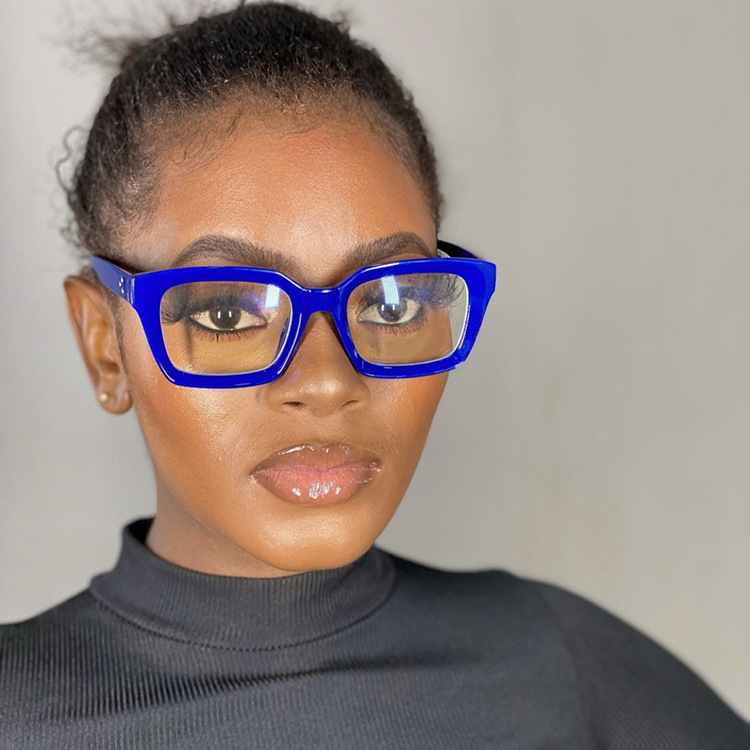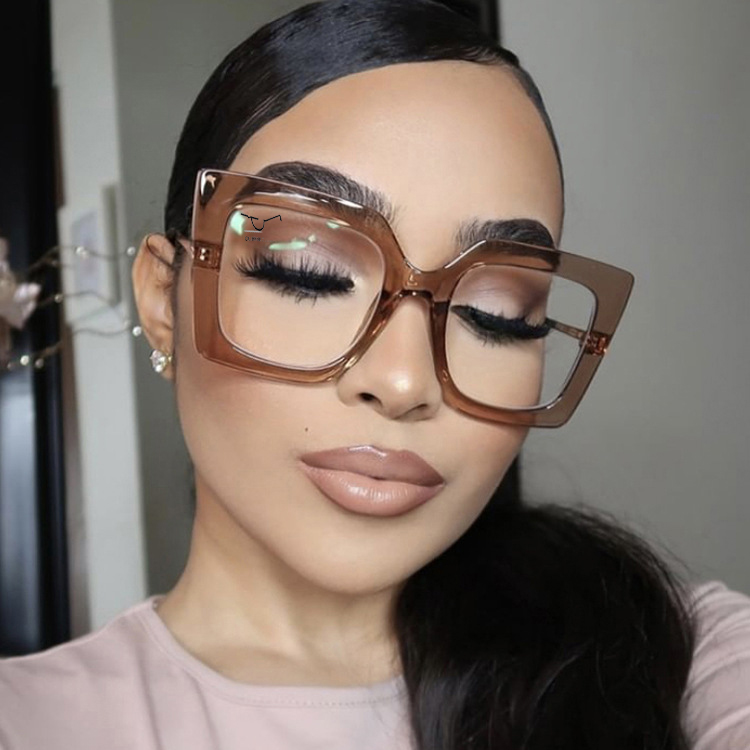Do blue light glasses really work?
Blue light glasses (or blue light blocking glasses) are becoming more popular than ever due to claims that they can protect your eyes against potential damage — but how effective are they at keeping your eyes healthy? https://www.dlsunglasses.com/china-large-wholesale-custom-tr90-blue-light-blocking-glasses-factory-product/

What is blue light?
Sunlight contains many types of coloured light (including red, orange, yellow, green, blue, indigo and violet), each with a different wavelength and energy level. Combined, this spectrum of coloured light rays creates what we call ‘white light’ (or sunlight).https://www.dlsunglasses.com/export-promotion-wholesale-metal-cat-eye-unisex-anti-blue-glasses-frame-product/
Blue light is just one type of coloured within this light spectrum — generally defined as ‘visible light’. This means that it has a short wavelength and high energy levels. Levels of blue light are emitted from a range of different light sources, the largest being the sun, which is where we get most of our exposure to it. However, there are also many man-made sources, and in recent years, blue light has gained notoriety because of its link to digital screens. Computers, tablets, smartphones and other digital screens all emit blue light. Although this is only a fraction of that emitted by the sun, however the amount of time people spend using these devices and the proximity of these screens to the eyes has caused some concern about potential long-term effects of blue light on eye health.
What does blue light do to your eyes?
Blue light has a short wavelength, which makes it very easy for it to penetrate the eyes. This means that almost all visible blue light rays can pass through the cornea and lens to the retina (the lining of the back of the eye). While there is little research to support this, some experts have suggested that too much exposure to blue light has the potential to damage the light-sensitive cells in the retina. One animal study also found that blue light damage may cause phototoxic retinal damage.
ANTI-BLUE GLASSES FRAME
However, while it is true that digital screens do emit some blue light, research has found that the level of blue light exposure from screens is significantly lower than that from natural daylight — and neither levels approach eye safety limits. This means that the potential blue light damage caused from digital screens is likely to be very little, if any at all.



What are blue light glasses?
Blue light glasses (sometimes called blue light blocking glasses) are glasses that contain lenses specifically designed to reduce the amount of blue light that reaches the eye. These lenses filter blue light rays to help prevent them from entering your eye and causing potential damage. Usually, blue light lenses have a slight yellow tint (to counterbalance the blue light), but you can’t usually notice this.
Do blue light glasses work?
While blue light blocking glasses are effective at reducing the amount of blue light that enter the eyes, there is no current research to suggest that this can improve or protect the health of your eyes. Put simply, there is no scientifically-proven benefit of wearing blue light blocking glasses for your eye health.
As The College of Optometrists states: ‘The best scientific evidence currently available does not support the use of blue-blocking spectacle lenses in the general population to improve visual performance, alleviate the symptoms of eye fatigue or visual discomfort, improve sleep quality or conserve macula health.’
What are some alternatives to blue light glasses?
Instead of resorting to blue light glasses, there are a number of other ways that have been proven to help reduce digital eye strain — from clever screen-use techniques to lens treatments that can be added to your prescription glasses.
Screen use top tips
Practicing self-care is one of the simplest ways to prevent and reduce eye strain. For instance, taking regular breaks and following the 20-20-20 rule (for every 20 minutes you look at a device, take a 20-second break looking at something 20 feet away) can help to give your eyes a rest from close-up vision and allow them to focus on different distances. Eye exercises can also be a good way to help reduce eye strain as long as they are used carefully. Read more about eye exercises and why you should be wary of eye yoga here. You can also adjust your computer or screen settings to ensure that the brightness and contrast are balanced correctly. If you find yourself focusing on small fonts or looking in detail at your screen, try making things larger by working at 125%-150% zoom. This will reduce the amount of work your eyes need to do to focus on very small text and images. Discover more tips on avoiding computer eye strain here.
Glasses for screen use
Another way to make your eyes more comfortable while using digital screens is to wear glasses that have an anti-glare coating on the lenses. These can help to limit the impact of light reflections on your eyes, ultimately reducing strain. For instance, our lens features a specialist anti-reflection treatment that helps to reduce reflections on your glass's lenses and limit screen glare. They are also smudge and scratch resistant, which help to give you an overall clearer view of your screen.


Varifocal lenses are another option, especially if you are over 40 and have noticed that your eyesight at all distances is beginning to worsen. Varifocal lenses seamlessly transition between viewing close up, far away and everything in between, making them ideal if you have different prescriptions for distance vision, using a digital device or reading. Unlike traditional varifocals, however, our lenses have been designed with digital screens in mind. The near zone even caters for the closer, higher position we hold our mobile phone, and they also include our lens help to reduce the effects of screen glare.
These lens treatments and options can be easily added to any of our stylish glasses' frames.

Post time: Oct-17-2022